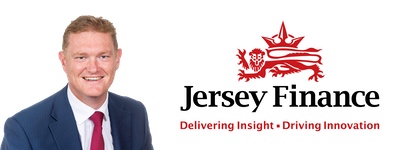
By Allan Wood
Global Head of Business Development, Jersey Finance
With its young and growing population, rising middle class and rapidly deepening capital markets, Africa presents an exceptional opportunity for investors.
Indeed, the past two years have seen unprecedented capital commitments to Africa in foreign direct investment (FDI) as the region becomes more economically and politically strategic. More than US$200bn in FDI has been committed by China, Russia, the EU, Japan and UK during this period.
This push of international capital flows into the continent will only accelerate with the increased requirements for environmental, social and governance (ESG) factors to be taken into account of investments. Impact investing to facilitate economic and social development in Africa will provide high-yielding opportunities in sustainable finance.
South African fund managers are already ahead of the curve on this. The past two decades have seen South African private equity expertise facilitate investment into retail, consumer, real estate and infrastructure across the wider African continent.
They are facilitating these flows into the wider African continent, and they are raising these funds across international capital markets, from America to Asia. In doing so, South African fund managers are primarily partnering with development finance institutions (DFIs).
There is a role for international financial centres (IFCs), like Jersey, to play in extending their financial expertise into these investments alongside private and institutional investors in a cost and tax-neutral setting with support from DFIs.
With such a wide mix of available global capital, investor appetite and opportunities for investing into Africa, the choice of fund domiciliation has never been more important, for both investors and fund managers looking for efficiency, stability and transparency.
Jersey has long been passionate about connecting African opportunities to the world with its highly regarded financial centre expertise, standards of governance and growing track record on the continent.
In 2014, the Jersey’s Value to Africa report set out the Island’s ambition to connect global capital to the African continent, through its highly networked international footprint and efficient regulatory frameworks. Since then, Jersey has been strengthening its relationships in the key hubs of South Africa, Kenya and Nigeria, while global interest in the continent has increased.
In 2020, Jersey Finance sought to build on these insights and commissioned an independent research report from African Business magazine surveying more than 60 investors and fund managers operating in jurisdictions worldwide and with a connection to South African managers. The objective of the report was to explore the emerging trends for fund domiciliation and capital raising, particularly as a route for private equity impact investing into the wider African continent.
Overview of Report Findings: Jurisdictional Stability is Key
The report, South African Fund Managers: Trends in Fund Domiciliation and Capital Raising, was launched on 5 November 2020 through a global webinar, with leading industry experts discussing the report and its findings.
The research looked at the drivers of domiciliation and capital raising from many perspectives.
As regards to the spread of assets in our sample, the investors, and the DFIs – situated in the US, UK and EU – 100% of capital is invested internationally, and their substantial portfolios are not limited to Africa. Among GPs, our sample had around 60% of their capital committed internationally, with the managers all having a connection to South Africa, but their funds or special purpose vehicles domiciled across onshore and offshore jurisdictions – the majority in Mauritius, but also around 30-40% in Caymans and Sub-Saharan Africa, and a smaller subset of around 10-15% of funds domiciled in the EU (mainly the UK, Dublin, Luxembourg and Jersey).
As to how funds end up in these jurisdictions, we found that choice ultimately rests with investors, although they are willing to be guided by the manager.
The investors in our sample with their significant international footprint have no particular preference to using a particular jurisdiction, provided the level of governance and regulation is sound.
Many South African private equity funds investing into Africa use Mauritius because of its geographical context and this has been the status quo for many years. This will, however, be complicated by Mauritius still being on the EU blacklist at the time of writing. Many managers we spoke were already considering redomiciling their funds into a more stable jurisdiction, and some investors warned if the issue was not resolved, they would be forced to move and restructure.
Ultimate factors leading to the choice of jurisdiction are also investor-led and this is determined by some key factors such as familiarity, cost, tax neutrality, regulation and governance, and the quality of local service providers and non-executive fund directors.
We find that, of these, top of mind for investors is the quality of the legal and regulatory framework, given the industry trend focused on transparency through anti-money laundering (AML), know-your-customer (KYC) and substance provisions resulting in increased regulatory reporting, and costs only further increased by the recent push for ESG to be incorporated into investment decision making.
Political and fiscal stability is also an increasing factor, given the geopolitical tumult due to Brexit, COVID-19, and the US-China trade war. It will be jurisdictions, such as Jersey, that can signal a safe haven status amidst the upheaval that will do well and continue to play an increasingly vital role in supporting capital raising in the coming years.
For more information on Jersey’s Africa-related activity, visit www.jerseyfinance.je/africa. Alternatively, you can view the full report, South African Fund Managers: Trends in Fund Domiciliation and Capital Raising, here.
Allan Wood
Global Head of Business Development, Jersey Finance


